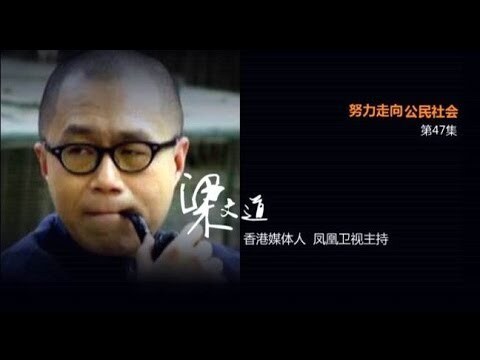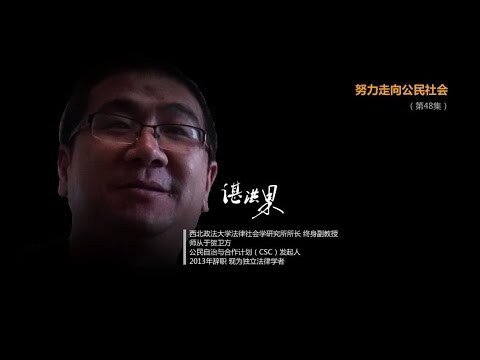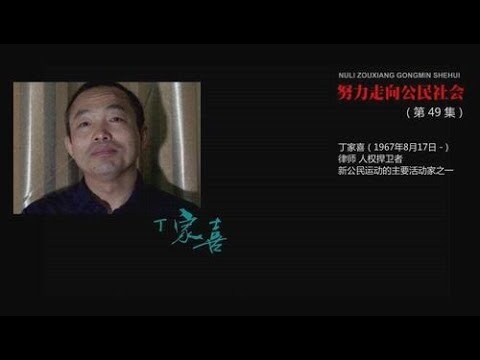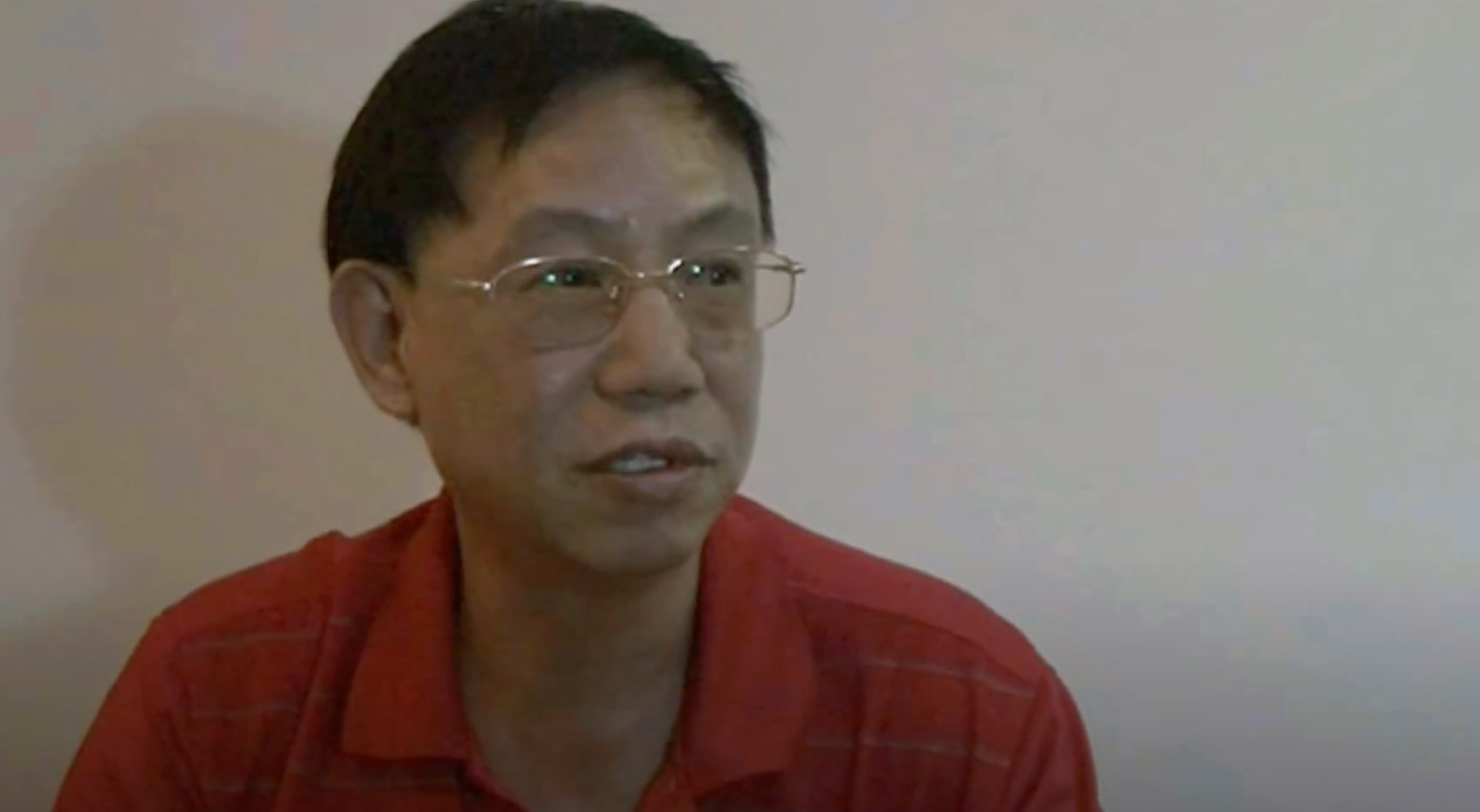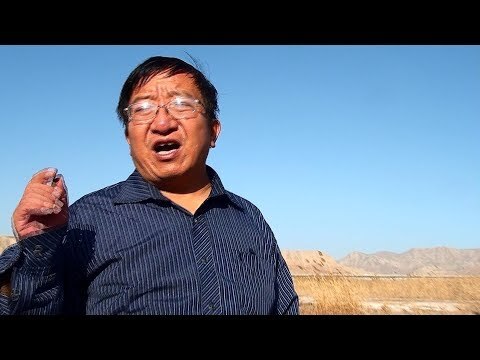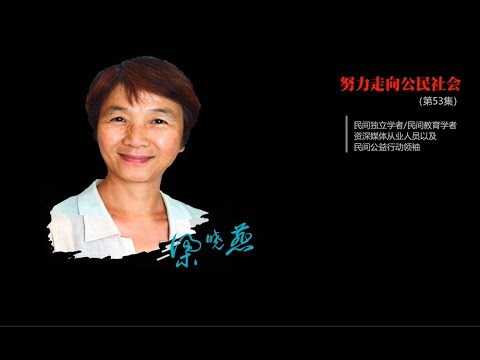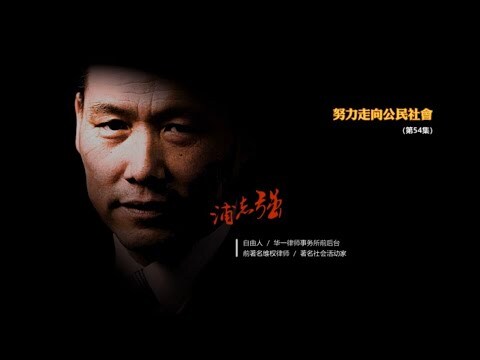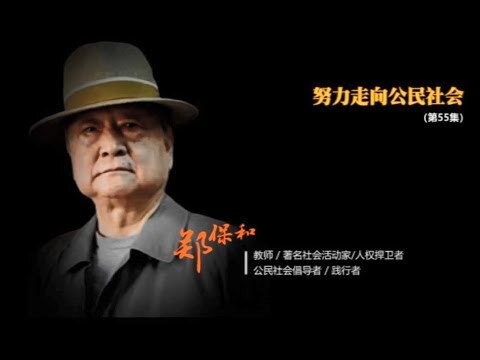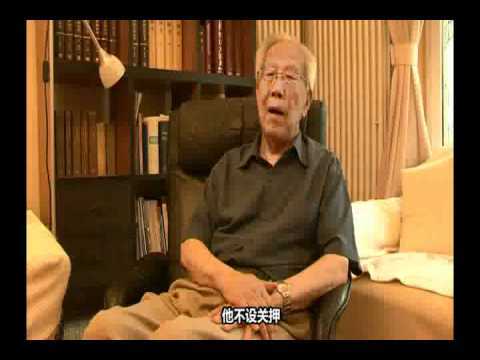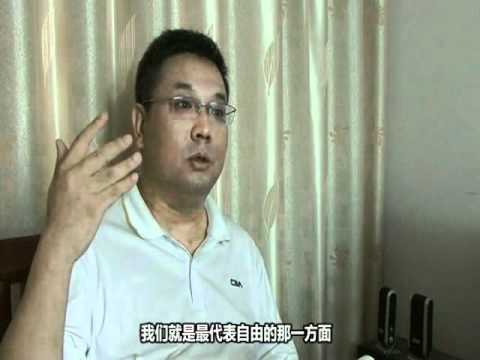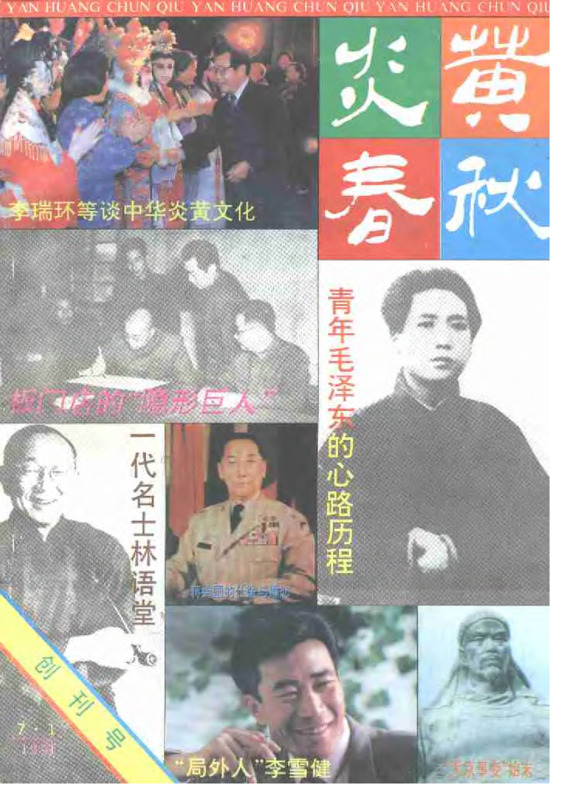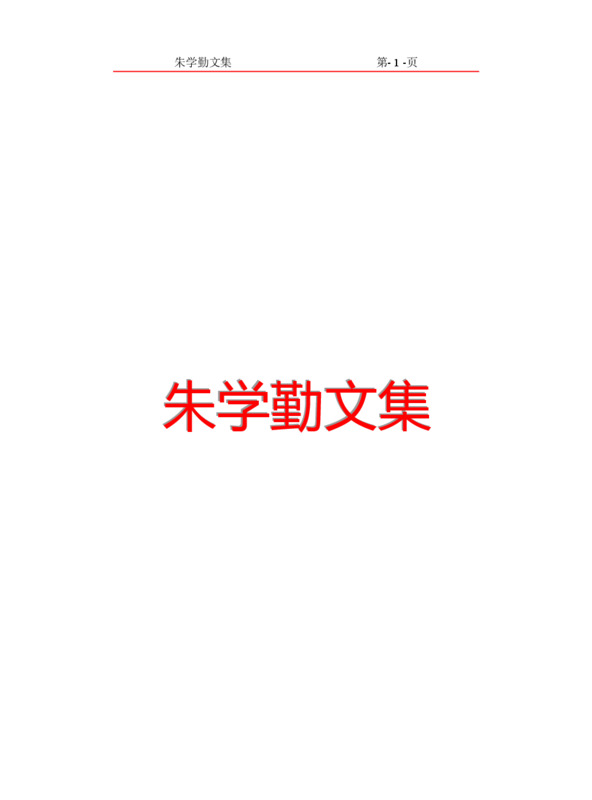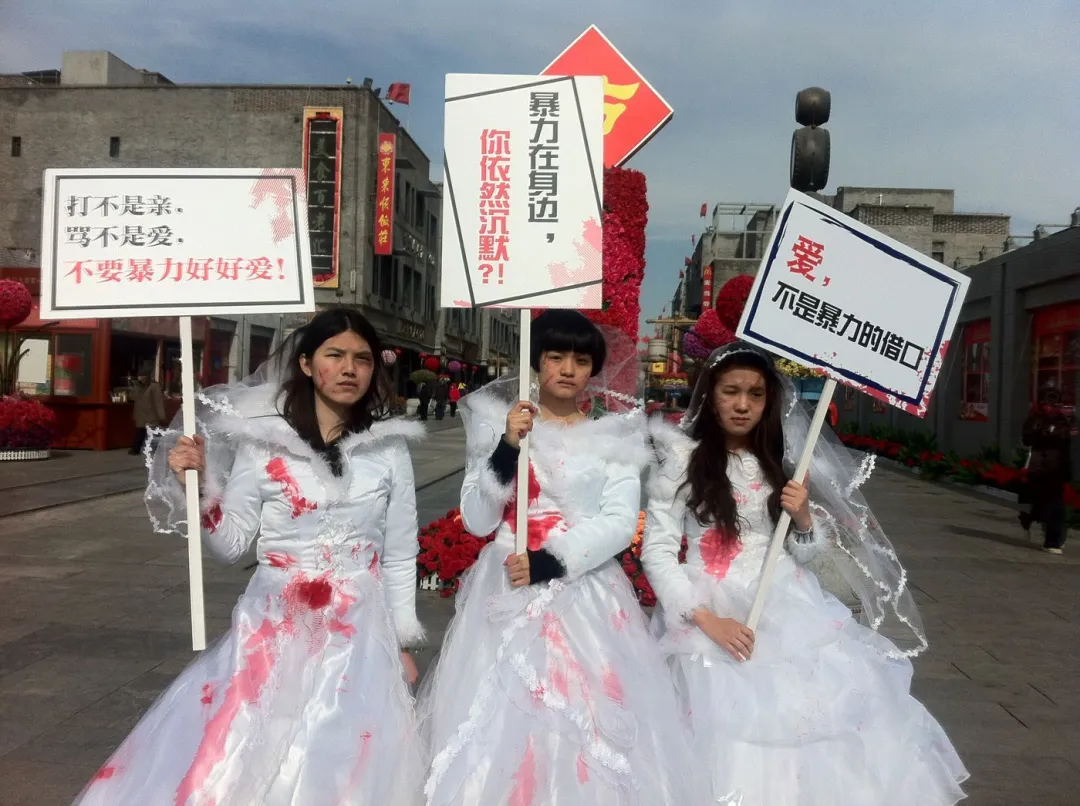Explore the collection
Showing 124 items in the collection
124 items
Film and Video
Working toward a Civil Society (Episode 47): Liang Wendao
How can China build a true civil society? Since 2010, independent director Tiger Temple has conducted a series of interviews with scholars and civil society participants.
Film and Video
Working toward a Civil Society (Episode 48): Chen Hongguo
How can China build a true civil society? Since 2010, independent director Tiger Temple has conducted a series of interviews with scholars and civil society participants.
Film and Video
Working toward a Civil Society (Episode 49): Ding Jiaxi
ow can China build a true civil society? Since 2010, independent director Tiger Temple has conducted a series of interviews with scholars and civil society participants.
Film and Video
Working toward a Civil Society (Episode 5): Cui Weiping
The Xi’an-based videographer Zhang Shihe, or Tiger Temple, has been a fixture on the independent Chinese history scene for more than twenty years. In 2010, he began a thirty-part series of short interviews with leading Chinese thinkers called “Working Toward Civil Society,” in which he explores how China can build a true civil society. Some of those interviewed have now been silenced, passed away, or moved abroad, making the series itself a work of history.
In this episode, Zhang interviews one of China’s most thoughtful public thinkers, Cui Weiping. Cui is a professor at the Beijing Film Academy, and translator of Havel into Chinese. She was a signer of Charter 08, and friend of the late Nobel Peace Prize laureate Liu Xiaobo. Although the interview is only 8 minutes long, Cui touches on some of the key problems that continue to plague China: how to break free of overwhelming government control of civic life?
Note to English speakers: this interview only has Chinese subtitles. The CUA is working to add English subtitles to all of our video offerings so check back in a few months.
Film and Video
Working toward a Civil Society (Episode 50): Zhang Baocheng
How can China build a true civil society? Since 2010, independent director Tiger Temple has conducted a series of interviews with scholars and civil society participants.
Film and Video
Working toward a Civil Society (Episode 51): Hu Shigen
How can China build a true civil society? Since 2010, independent director Tiger Temple has conducted a series of interviews with scholars and civil society participants.
Film and Video
Working toward a Civil Society (Episode 52): Qu Mingxue
How can China build a true civil society? Since 2010, independent director Tiger Temple has conducted a series of interviews with scholars and civil society participants.
Film and Video
Working toward a Civil Society (Episode 53): Liang Xiaoyan
How can China build a true civil society? Since 2010, independent director Tiger Temple has conducted a series of interviews with scholars and civil society participants.
Film and Video
Working Toward a Civil Society (Episode 54): Pu Zhiqiang
How can China build a true civil society? Independent director Tiger Temple has conducted a series of interviews with scholars and civil society participants since 2010.
Film and Video
Working toward a Civil Society (Episode 55): Zheng Baohe
How can China build a true civil society? Since 2010, independent director Tiger Temple has conducted a series of interviews with scholars and civil society participants.
Film and Video
Working toward a Civil Society (Episode 6): He Fang
How can China build a real civil society? Since 2010, independent director Tiger Temple sat for a series of interviews with scholars and civil society actors.
Film and Video
Working toward a Civil Society (Episode 7): Guo Yuhua
How can China build a real civil society? Since 2010, independent director Tiger Temple sat for a series of interviews with scholars and civil society actors.
Film and Video
Working toward a Civil Society (Episode 8): Xu Youyu
How can China build a true civil society? Since 2010, independent director Tiger Temple has conducted a series of interviews with scholars and civil society participants.
Film and Video
Working toward a Civil Society (Episode 9): Zhang Hui
How can China build a true civil society? Since 2010, independent director Tiger Temple has conducted a series of interviews with scholars and civil society participants.
Film and Video
Xu Zhiyong
Chinese human rights activist Dr. Xu Zhiyong, twice imprisoned for his longstanding advocacy of civil society in China, was sentenced to 14 years in prison by the Chinese government in April 2023. The documentary by independent director Lao Hu Miao was filmed over a four-year period, beginning with the seizure of the Public League Legal Research Center, which Xu Zhiyong helped found in 2009, and ending with Xu's first prison sentence in 2014.
Book
Yangmou - The Beginning and End of the Anti-Rightist Movement
The revised edition of this book was published by *Open Magazine* in Hong Kong in 2007. The first edition was published in 1991 and was revised and reprinted twice, in 1993 and 1995. The book collects a large amount of information about the anti-rightist movement, including survey interviews with victims of the anti-rightist movement and their relatives and friends. It is a complete record of the anti-rightist movement, which comprehensively analyzes and discusses the whole process of the anti-rightist movement, as well as its ins and outs, causes and consequences. Regarding the number of "rightists," the statistics of the CCP authorities had been limited to 550,000 people. According to Ding Lyric's analysis, there were about 1.2 million people who were labeled as "rightists" in the Anti-Rightist Movement.
Book
Yangtze Yangtze
In March 1989, the book Yangtze Yangtze was published by the Guizhou People's Publishing House just as the Tiananmen student protests were about to begin in Beijing. The book fed into this intellectual ferment, challenging the technocratic reasons for the Three Gorges Dam, which eventually would dam the Yangtze River in the name of flood control and electrical power generation.
The book was edited by the journalist Dai Qing, the daughter of a well-known Communist Party activist and leader. The book challenged the project's decision-making process, with a broad array of scientists, journalists, and intellectuals arguing that it was not democratic and did not take into account all viewpoints. It was widely read in China and translated into foreign languages.
After the Tiananmen protests were violently suppressed, Dai Qing was arrested and imprisoned for ten months in Qincheng Prison as an organizer of the uprising. Yangtze Yangtze was criticized as “promoting bourgeois liberalization, opposing the Four Fundamental Principles (of party control), and creating public opinion for turmoil and riots.” The book was taken off the shelves and destroyed, with some copies burned. It became the first banned book resulting from the decision-making process of the Three Gorges Project.
The book is banned in China. The English-language edition can be read online at Probe International: https://journal.probeinternational.org/three-gorges-probe/yangtze-yangtze/.
Yanhuang Chunqiu
This magazine was one of most important alternative history journals. It was founded in 1991 by a liberal faction in the CCP, with the help of people such as Xiao Ke, a general in the PLA, and Du Daozheng, a Chinese journalist who once served as head of Guangming Daily and the head of the National Press and Publications Administration of China. It attracted the support of other liberal CCP members, such as Xi Zhongxun, the father of Xi Jinping, and for many years its chief editor was the famous Chinese journalist Yang Jisheng.
The journal had upwards of 200,000 readers a month. In 2016 its reform-oriented management was dismissed as part of a crackdown on alternative histories.
The China Unofficial Archives has a complete set of <i>Yanhuang Chunqiu</i> in its database. Over time, we will index the individual issues and hope to provide English summaries.
Book
Zhu Xueqin Anthology
A collection of essays by Zhu Xueqin, a Chinese liberal intellectual. He has faced and criticizes various problems in China from a liberal point of view. Most of Zhu Xueqin's books were later banned.
Article
A Brief History of Young Feminists Activism in China
Since 2012, a group known as the “Young Feminist Activists”, has emerged in China. They often use performance art in public to promote gender equality issues; they question injustice, and engage in policy advocacy to advance women’s rights. They make use of social media and the internet to provoke public debate, build public support, and mount pressure for social and self-transformation in China. Their direct actions created new space for activism in China's tightening political environment.
This article provides a detailed overview of the actions initiated by the young feminist activists between 2012 and 2019. These actions cover a wide range of gender issues, including but not limited to sexual assault/harassment, gender-based violence, gender equality in employment and schooling, gender stigma and stereotyping, marriage autonomy, and lesbian rights and interests. These actions have not only raised the public's awareness of gender equality, but also promoted the introduction of gender equality legislation and policies.
A turning point came In 2015 when five young feminist activists were arrested and detained for 37 days for planning to hold an anti-sexual harassment campaign on March 8, Interantional Women's Day. Since then, young feminist activists have almost completely lost their space on the streets. However, as can be seen from this article, feminist activism did not disappear, but sustained and continued in a variety of ways, including the creative use of social media and leveraging transnational solidarity and action.
In the article, the author says, “Young feminist activists should not be forgotten by the public, especially in an environment where censorship has intensified in the past years, civil society has nearly collapsed, and it is extremely difficult for people to speak out. While there is a seeming increase in discussion of feminism in domestic social media, it has been severely depoliticized, feminist activists are marginalized and stigmatized, and their voices silenced. Therefore, it is particularly important to tell the stories of young feminist activists and popularize knowledge about the domestic feminist movement. It is important to let more people see the spirit and achievements of the new generation of Chinese feminists, and understand the important gender issues they have promoted.”
The article is accompanied by numerous images, videos and links to other resources for further reading.
